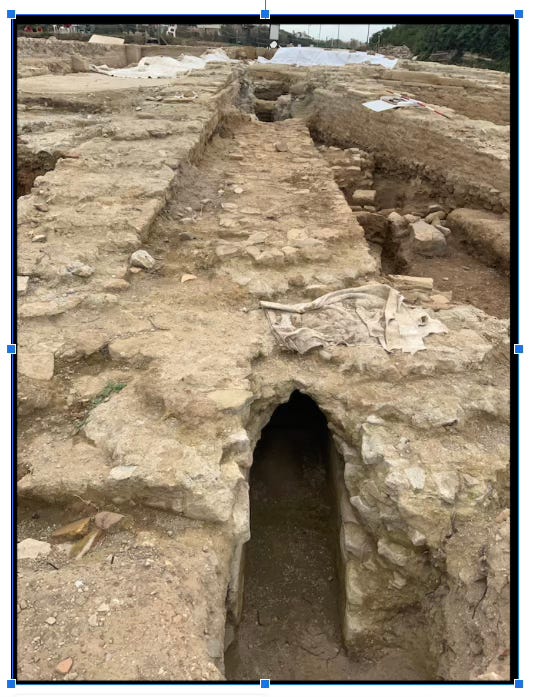The architecture of isolation 3 - early December 2023
Drains, foulness, disease transmission
In the first page of my diary, Melanie inquired about plumbing arrangements in Roman settlements. The one I am digging now had completely separate (180-degree difference in orientation) outflows for sewage and waste water.
The picture below shows the cloaca or sewage outflow. The channel is still intact, as you can see, after 2000 years. The supply water outflow is on the far side of the picture, and there is a complete separation between the two. The Popes (the rulers around here until 1861) robbed the structures, so the cloaca’s exact date is difficult to assign. It certainly serviced the theatre, the remains of which are all around the picture, or it could also be linked to the underlying early fort.
The remarkable thing is the robustness of the construction, which I can testify to. Other examples survive today, such as the military fortress in York that became the city of Eburacum.
Other military counterpart examples are once again taken from Bishop’s excellent Handbook:
Keep reading with a 7-day free trial
Subscribe to Trust the Evidence to keep reading this post and get 7 days of free access to the full post archives.


